Digital Marketing Advertising Agency
Digital Marketing Advertising Agency
Digital Marketing Advertising Agency, In today’s hyper-connected world, businesses rely heavily on digital marketing strategies to engage their audiences and grow their brands. A digital marketing advertising agency acts as a vital partner, leveraging cutting-edge tools, expertise, and data-driven strategies to help companies thrive online.
What is a Digital Marketing Advertising Agency?
A digital marketing advertising agency specializes in promoting brands through various online platforms. These agencies offer services such as search engine optimization (SEO), pay-per-click (PPC) advertising, social media management, content marketing, and more. Their primary goal is to drive traffic, generate leads, and increase conversions for businesses across industries.
Why Choose a Digital Marketing Advertising Agency?
Collaborating with a digital marketing advertising agency provides businesses with several advantages:
Expertise and Experience
Agencies bring specialized knowledge and a wealth of experience to design tailored strategies. Their deep understanding of digital marketing trends and platforms ensures that your campaigns are optimized for success. Whether it’s SEO, PPC, or social media, agencies have teams of experts who know how to deliver results.
Cost Efficiency
Hiring a digital marketing agency can save businesses significant costs compared to building an in-house team. Agencies provide comprehensive services, eliminating the need for multiple hires and training expenses. Additionally, they help allocate marketing budgets effectively, ensuring maximum ROI.
Data-Driven Decisions
A major advantage of working with an agency is their ability to harness data. By analyzing performance metrics and audience behavior, agencies refine campaigns to achieve better outcomes. This analytical approach helps identify what works and eliminates guesswork.
Access to Advanced Tools
Digital marketing agencies have access to premium tools and software that enhance campaign performance. From keyword research and competitor analysis to performance tracking and reporting, these tools provide insights that would otherwise be costly for businesses to obtain independently.
In summary, partnering with a digital marketing advertising agency offers businesses expertise, cost efficiency, data-driven strategies, and access to advanced resources. These advantages make agencies indispensable for companies looking to thrive in the competitive digital landscape.
Core Services Offered by Digital Marketing Advertising Agencies
1. Search Engine Optimization (SEO)
SEO is the cornerstone of digital marketing. Agencies optimize websites to improve their visibility on search engine results pages (SERPs). This involves:
- Conducting keyword research.
- Enhancing on-page components such as meta descriptions, headers, and images.
- Building quality backlinks.
- Ensuring mobile-friendly and fast-loading websites.
2. Pay-Per-Click (PPC) Advertising
PPC campaigns deliver immediate results by placing ads on search engines and other platforms. Agencies manage every aspect of PPC campaigns, including:
- Keyword bidding.
- Crafting compelling ad copy.
- Monitoring performance metrics.
- Optimizing ads for better click-through and conversion rates.
3. Social Media Marketing (SMM)
Social media platforms are pivotal for connecting with audiences. Agencies craft targeted strategies to boost brand awareness and engagement on platforms like Facebook, Instagram, LinkedIn, and Twitter. Key activities include:
- Creating and scheduling posts.
- Running paid ad campaigns.
- Engaging with followers.
- Analyzing social media performance.
4. Content Marketing
Content is the backbone of digital marketing. Agencies create high-quality blogs, articles, videos, and infographics to:
- Educate and engage audiences.
- Drive organic traffic.
- Establish authority in the industry.
5. Email Marketing
Agencies design personalized email campaigns to nurture leads and retain customers. This involves crafting engaging email content, segmenting audiences, and analyzing open and click-through rates.
6. Analytics and Reporting
Data-driven insights are crucial for refining strategies. Agencies provide detailed analytical reports, highlighting:
- Website traffic sources.
- Conversion rates.
- Campaign ROI.
- User demographics and behavior.
Analytical Image Reports
Analytical reports are the backbone of any successful digital marketing campaign, offering valuable insights that drive data-driven decisions. Below, we delve deeper into key areas where analytical image reports make a significant impact, providing examples and visual metrics to illustrate their importance.
1. Website Traffic Analysis
Understanding website traffic is essential for evaluating online performance. Analytical reports typically highlight:
Sources:
- Organic: Traffic originating from search engines due to effective SEO strategies.
- Direct: Users entering the website URL directly, reflecting brand awareness.
- Referral: Visitors coming from other websites or backlinks.
- Social Media: Traffic driven by platforms like Facebook, Instagram, LinkedIn, and Twitter.
Geographic Breakdown:
- Audience distribution by country, region, or city.
- Identification of high-traffic areas for targeted campaigns.
Visualization:
Include pie charts showing traffic sources and heatmaps representing geographic distribution. These insights enable businesses to focus on top-performing channels and regions.
2. Social Media Performance
Social media analytics provide an in-depth view of audience engagement and campaign success. Key metrics include:
Engagement Metrics:
- Likes, Shares, Comments: Indicators of audience interaction with content.
- Video Views: Understanding the reach and resonance of video campaigns.
Audience Growth:
- Tracking follower increases over time.
- Identifying content that drives growth and engagement.
Visualization:
Line graphs illustrating audience growth trends and bar charts comparing post engagement metrics offer clarity and actionable insights.
3. Ad Campaign ROI
Analyzing ad performance ensures maximum return on investment. Key focus areas include:
Click-Through Rates (CTR):
- Measures the effectiveness of ad creatives and targeting.
Cost-Per-Conversion:
- Evaluates the cost-efficiency of campaigns by comparing spending to generated leads or sales.
Visualization:
Graphs comparing CTR across campaigns and detailed cost-per-conversion tables help optimize future ad strategies.
The Process of Working with a Digital Marketing Advertising Agency
Collaborating with a digital marketing agency involves a structured approach that ensures results align with business goals. Here’s how the process unfolds:
Initial Consultation:
The journey begins with understanding the client’s objectives, target audience, and industry challenges. This phase involves:
- Comprehensive discussions about goals.
- Analyzing existing marketing efforts.
- Identifying key performance indicators (KPIs).
Strategy Development:
The agency crafts a tailored plan, detailing:
- Target audience profiles.
- Recommended channels (e.g., SEO, PPC, social media).
- Timeline and budget allocation.
Execution:
Implementing the strategy with precision, including:
- Publishing content across chosen platforms.
- Launching ad campaigns and optimizing bids.
- Engaging with audiences on social media.
Monitoring and Optimization:
Continuous monitoring ensures campaigns remain effective. Agencies:
- Analyze performance data to identify improvement areas.
- Adjust strategies based on real-time insights.
- Implement A/B testing for ad creatives and landing pages.
Reporting:
Providing clients with transparent updates through:
- Weekly or monthly performance reports.
- Visual dashboards showcasing KPIs.
Case Studies: Real-World Impact
Case Study 1: Small Business Growth
Case studies provide compelling evidence of how digital marketing strategies can transform businesses. Below, we examine two success stories that highlight the tangible benefits of partnering with a digital marketing agency.
Case Study 1: Small Business Growth
A local bakery struggling to stand out in a competitive market sought the expertise of a digital marketing agency. The objective was to enhance the bakery’s visibility and attract more customers. The agency devised a two-pronged strategy focused on local SEO and social media advertising.
Implementation:
- Local SEO: The agency optimized the bakery’s website with geo-targeted keywords, improved loading speeds, and claimed the business’s Google My Business profile. They also encouraged satisfied customers to leave positive reviews, boosting credibility.
- Social Media Ads: Targeted Facebook and Instagram campaigns promoted special offers, seasonal products, and customer testimonials to engage the local community.
Results:
- 50% Increase in Website Traffic: Enhanced local search rankings drove significantly more visitors to the bakery’s website.
- 30% Boost in Sales: The combination of optimized online presence and engaging social ads attracted new customers and encouraged repeat business.
This approach not only improved the bakery’s bottom line but also established it as a beloved community brand.
Case Study 2: E-commerce Success
An e-commerce store specializing in niche products faced challenges in scaling sales and retaining customers. The digital marketing agency stepped in with a strategy that combined pay-per-click (PPC) advertising and content marketing.
Implementation:
- PPC Campaigns: The agency conducted in-depth keyword research and developed targeted Google Ads campaigns to reach the right audience. They monitored and optimized the ads continuously to maximize performance.
- Content Marketing: The agency created engaging blog posts, how-to guides, and infographics relevant to the store’s products. They also implemented lead magnets, such as downloadable e-books, to grow the email subscriber list.
Results:
- 200% Return on Ad Spend (ROAS): Optimized ad strategies ensured every dollar spent yielded substantial profits, proving the efficiency of PPC efforts.
- Double Email Subscribers: High-quality content and strategically placed calls-to-action attracted more users to sign up for newsletters, creating a robust channel for repeat marketing.
The store’s online presence and revenue both experienced exponential growth, turning it into a leader within its niche market.
Key Takeaways
These case studies underline the transformative potential of digital marketing:
- Tailored Strategies Yield Results: Customizing approaches to fit specific business goals ensures better outcomes.
- Data-Driven Decisions Drive Success: Leveraging analytics for optimization delivers measurable improvements.
- Collaboration Enhances Growth: Working closely with an experienced agency empowers businesses to reach their full potential.
Partnering with a digital marketing agency allows businesses of all sizes to unlock opportunities, overcome challenges, and achieve sustainable growth. Whether boosting local visibility or scaling an online store, the right strategies can make a world of difference.
Choosing the Right Digital Marketing Advertising Agency
Selecting the right agency is crucial for achieving desired results. Here’s what to consider:
Reputation:
- Research online reviews and testimonials.
- Ask for case studies or examples of past successes.
Expertise:
- Ensure the agency specializes in services aligned with your needs (e.g., SEO, PPC).
- Confirm they have experience in your industry.
Communication:
- Look for clear and regular updates.
- Choose a partner that values collaboration and transparency.
Budget:
- Discuss pricing structures and ensure they align with your financial plan.
- Focus on value delivered, not just cost.
The Future of Digital Marketing
Digital marketing is a dynamic and ever-evolving field, shaped by technological innovations and shifting consumer expectations. For businesses and agencies alike, staying ahead of these changes is critical to maintaining relevance and driving impactful campaigns. Here’s an in-depth look at the key trends shaping the future of digital marketing:
AI-Driven Marketing
Artificial intelligence (AI) is revolutionizing digital marketing by enabling smarter, more efficient strategies. Through predictive analytics, AI helps marketers anticipate consumer behavior, optimize campaign performance, and identify new opportunities. Chatbots powered by AI provide instant, personalized customer support, improving user experience and engagement. Additionally, AI-driven tools can automate tasks like content creation and ad targeting, freeing up time for more strategic initiatives.
Voice Search Optimization
The rise of smart speakers and voice-activated assistants like Amazon Alexa and Google Assistant has transformed how consumers search for information. It is projected that by 2025, more than half of all searches will be conducted through voice. Marketers must adapt their strategies by focusing on conversational keywords and ensuring their content aligns with natural language queries. Optimizing for voice search also means prioritizing local SEO, as many voice searches are location-specific (e.g., “Find a coffee shop near me”).
Enhanced Personalization
Personalization remains at the forefront of successful marketing strategies. With access to vast amounts of user data, marketers can deliver hyper-targeted campaigns tailored to individual preferences and behaviors. Enhanced personalization goes beyond addressing customers by name; it involves curating unique content, product recommendations, and offers based on real-time insights. This approach not only improves conversion rates but also fosters stronger customer loyalty.
Interactive Content
Interactive content is transforming how brands engage with their audiences. By incorporating elements like augmented reality (AR), virtual reality (VR), polls, quizzes, and interactive videos, marketers can create immersive experiences that captivate users. For example, AR tools allow customers to visualize products in their own environments, while quizzes provide valuable insights into consumer preferences. Interactive content not only boosts engagement but also encourages users to spend more time with a brand’s offerings.
The Role of Emerging Technologies
Emerging technologies such as blockchain, 5G, and edge computing are set to redefine the digital marketing landscape. Blockchain enhances transparency in digital advertising by reducing fraud and verifying ad placements. Meanwhile, 5G technology enables faster content delivery and richer mobile experiences, paving the way for more sophisticated campaigns. Edge computing facilitates real-time data processing, ensuring marketers can act quickly on audience insights.
Preparing for the Future
To thrive in the future of digital marketing, agencies and businesses must embrace innovation and adopt a forward-thinking mindset. This involves:
- Investing in advanced tools and technologies.
- Upskilling teams to stay updated on emerging trends.
- Building adaptable strategies that can evolve with market demands.
By embracing these trends, digital marketing agencies ensure their clients remain competitive and relevant.
Conclusion
Partnering with a digital marketing advertising agency can transform your business. With their expertise, tools, and data-driven strategies, these agencies unlock unparalleled growth opportunities. Embrace the digital revolution today and propel your brand to new heights.
For more insights and services, visit www.xitsolutionteam.com.








